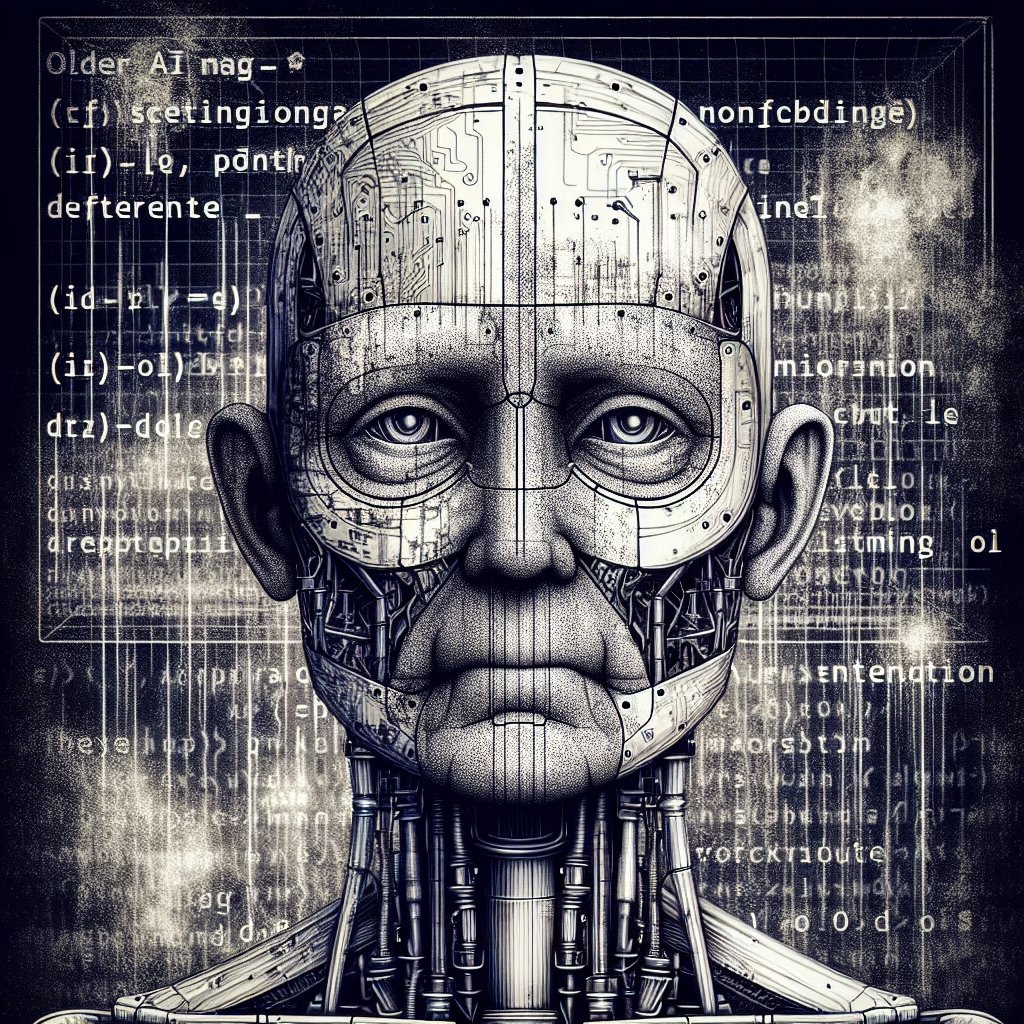Older AI Models Show Signs of Cognitive Decline, Study Shows
Artificial intelligence is evolving at an unprecedented pace, with new models regularly surpassing their predecessors in terms of speed, accuracy, and efficiency. However, a recent study has revealed a fascinating and somewhat alarming phenomenon—older AI models appear to experience a form of “cognitive decline” over time. This discovery raises important questions about the long-term reliability of AI systems and their real-world applications.
What Does “Cognitive Decline” Mean for AI?
In humans, cognitive decline typically refers to a reduction in mental capabilities as we age. While AI doesn’t “age” in the biological sense, researchers have observed a similar phenomenon where older versions of AI models perform worse over time, even when handling tasks they initially excelled at.
Key findings from the study suggest that AI models may:
- Struggle with previously mastered tasks as updates and newer methodologies reshape their foundational knowledge.
- Lose problem-solving efficiency due to evolving training data and shifting parameters.
- Show signs of “forgetting” as newer models surpass them in performance.
This raises concerns about the longevity and reliability of AI, particularly in industries where consistency and accuracy are paramount.
What Causes Cognitive Decline in Older AI Models?
The decline in AI performance over time can be attributed to several factors. Unlike human aging, which is biological, an AI model’s degradation is a result of technical limitations, shifts in training data, and model updates. Let’s explore some of the primary causes:
1. Data Drift and Model Decay
One of the core reasons for this decline is data drift—a phenomenon where the real-world data AI encounters changes over time, rendering older models less effective.
- AI models are trained on large datasets, but over time, the relevance of their training data diminishes.
- Languages evolve, financial patterns fluctuate, and user behavior shifts, all of which can reduce an AI’s accuracy.
- Without continuous retraining, older models struggle to adapt to new environments.
2. Catastrophic Forgetting
AI models, particularly neural networks, are known to experience catastrophic forgetting. This occurs when an AI system is exposed to new information that overwrites or diminishes its ability to recall previously learned patterns.
Newer AI models are often trained from scratch or heavily fine-tuned, leading older models to become obsolete as their knowledge is gradually replaced by fresh insights.
3. Hardware and Software Limitations
AI models are designed to run on specific hardware and software frameworks. As these technologies improve, older AI models may become incompatible with modern systems due to issues such as:
- Lack of computational resources: Older models may not be optimized for newer, more efficient hardware.
- Outdated programming frameworks: Advances in machine learning libraries cause older models to lag behind in efficiency and adaptability.
- Technical debt: Companies may prioritize newer models over maintaining older ones, leading to gradual decline.
Why Is This Discovery Important?
The revelation that AI models experience cognitive decline has significant implications for industries that rely on artificial intelligence for decision-making and automation. From healthcare to finance, aging AI models could pose serious risks.
Impact on Critical Industries
AI is widely used in essential sectors, and performance degradation in aging models could lead to improper decision-making. Consider the following consequences:
- Healthcare: AI-based diagnostic tools that fail to update appropriately might misdiagnose diseases.
- Finance: Older financial prediction models could make inaccurate forecasts, leading to losses.
- Autonomous Systems: Self-driving cars and automated robots may become less reliable over time.
The Cost of AI Maintenance
With AI models needing frequent updates and retraining to remain relevant, organizations must allocate significant resources toward maintenance. This study highlights the importance of long-term AI sustainability through:
- Regular retraining on fresh, high-quality data.
- Implementing continuous learning systems to prevent data drift.
- Developing hybrid models that incorporate historical and new information seamlessly.
What Can Be Done to Prevent AI Aging?
As AI research continues to advance, developers and researchers are exploring strategies to mitigate performance degradation in older models. A few promising solutions include:
1. Continuous Learning Systems
Unlike traditional machine learning models that are trained once and deployed, continuous learning systems allow AI to adapt dynamically to new information, preventing rapid decline.
- Regularly refresh AI training data.
- Utilize reinforcement learning to help AI adjust over time.
- Incorporate transfer learning techniques to retain foundational knowledge.
2. Model Refresh and Hybrid AI Approaches
Instead of discarding older models entirely, AI researchers are experimenting with hybrid approaches that combine the best of both worlds:
- Using ensemble learning, where multiple AI models work together.
- Blending older models with updated versions to maintain historical understanding.
- Integrating model monitoring systems to track and optimize performance.
3. Ethical and Regulatory Considerations
The phenomenon of AI cognitive decline also raises concerns about AI accountability and transparency. Regulators and AI ethics experts are advocating for better policies surrounding:
- Regular auditing of AI models for sustained accuracy.
- Transparency in AI decision-making processes.
- Ethical guidelines for decommissioning outdated models safely.
Final Thoughts
The discovery that older AI models show signs of cognitive decline is a critical reminder that artificial intelligence, like any other system, requires proper maintenance and oversight. As AI continues to shape various industries, addressing the issue of model decay will be crucial for ensuring long-term reliability and trustworthiness.
With advances in continuous learning, hybrid modeling, and regulatory measures, we can mitigate many of these challenges. However, businesses and developers must remain proactive in maintaining their AI systems to prevent unintended consequences.
Ultimately, this study sheds light on the evolving nature of AI, highlighting the importance of sustainability in artificial intelligence development. As technology progresses, ensuring that AI remains robust, adaptable, and ethical will be one of the key challenges for researchers and industry leaders alike.
< lang="en">







Leave a Reply